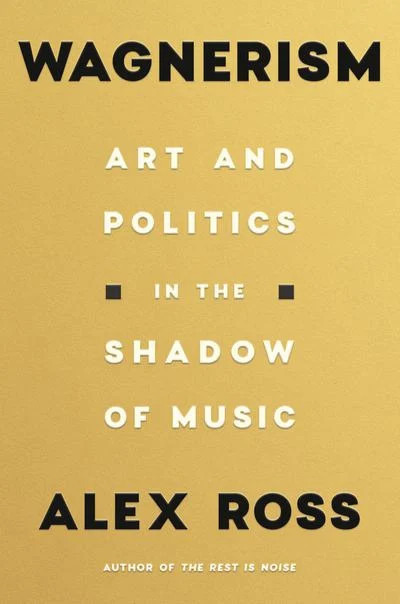search
date/time
 | Yorkshire Times A Voice of the Free Press |

Mike Tilling
Arts Correspondent
1:36 PM 13th January 2021
arts
Wagnerism – Art And Politics In The Shadow Of Music – Alex Ross, 4th Estate

Alex Ross is the music critic for The New York Times. Some readers may be familiar with his book on 20th Century music, The Rest is Noise. The book on Wagner is as magnificent as The Rest is Noise, with knobs on. For those of us merely toiling in the foothills of Arts reviewing, Wagnerism towers above us like an Everest disappearing into the clouds.
The ‘Wagnerism’ of the title describes the immense and long-lasting impact that Wagner had on European, and then world-wide, cultural life. In our own time, perhaps the nearest comparison would be ‘Beatlemania’, although Wagner's influence was limited to a certain stratum of society, whereas the Beatles, thanks to mas media, was much more extensive.

Alex Ross
Chapter One deals with Wagner and his on/off relationship with Nietzsche. This flawed genius blew hot and cold with many ideas and contemporaries, but none more so than Wagner. And just in case you were thinking that analysing one relationship in the field of philosophy is not that impressive, Ross also explores connections with Schopenhauer (in particular, his influence on Parsifal), Fichte and Hegel.
Chapter Two turns the spotlight on Wagner and France. The most eminent and controversial French poet of the period, Baudelaire, wrote to his publisher, ‘I dream continuously of WAGNER (sic) ...’. Baudelaire was not alone, in 1895 a group of poets founded the Revue Wagerienne and a successful concert series played only music by Wagner.
Also by Mike Tilling...
Hannah: The Soldier DiaryClassical Music: Path to the MoonHigh Energy Northanger AbbeyClassical Music: The Music Of Robert Schumann, Clara Schumann, And Johannes BrahmsDo I Love You – John GodberMusically, Ross is equally enlightening. For example, Wagner’s use of the leitmotif is well known: characters or places are identified by a defined sequence of notes. Ross traces a single motif, Renunciation of Love from its first appearance in Das Rheingold, the subsequent use in Die Walkure, then making its last appearance in Gotterdammerung. In each case Ross not only identifies how the theme is used, but analyses how Wagner bends the sequence of notes to offer an insight into characters’ psychological states.
Nor does Ross duck the issue of Wagner’s avowed anti-Semitism. He deals with it over two chapters – Chapter 10 The First World War and Hitler’s Youth and Chapter 13 Nazi Germany and Thomas Mann. It is up to each individual to decide whether the composer’s vile opinions can be divorced from an appreciation of the music.
If ever there was a lock down book it is this one. You will have gathered from what has gone above that this is no air port lounge impulse buy, but if you fancy something that is challenging, enlightening and superbly written then look no further than Wagnerism.